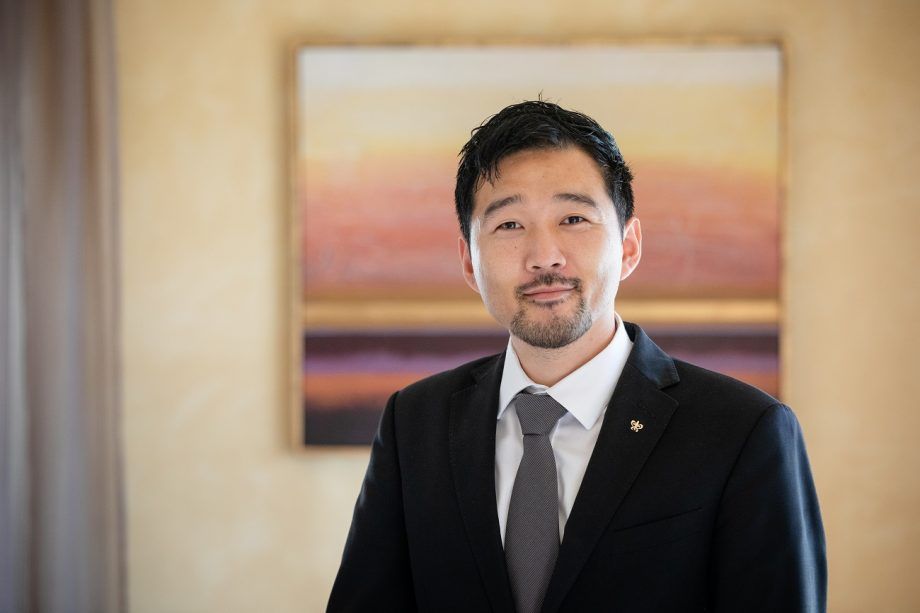Tell us about how you got into wine and why you wanted to follow a career in wine?
My journey into the world of wine began by chance. I wasn't particularly strong academically, which limited my options for high school, so I ended up enrolling in a hospitality program. In my second year, I decided to do a work at a well-known fine dining restaurant, which was completely different from anything I had experienced before. During my time there, I noticed guests would spend a significant amount of money on wine, and I really could not understand why.
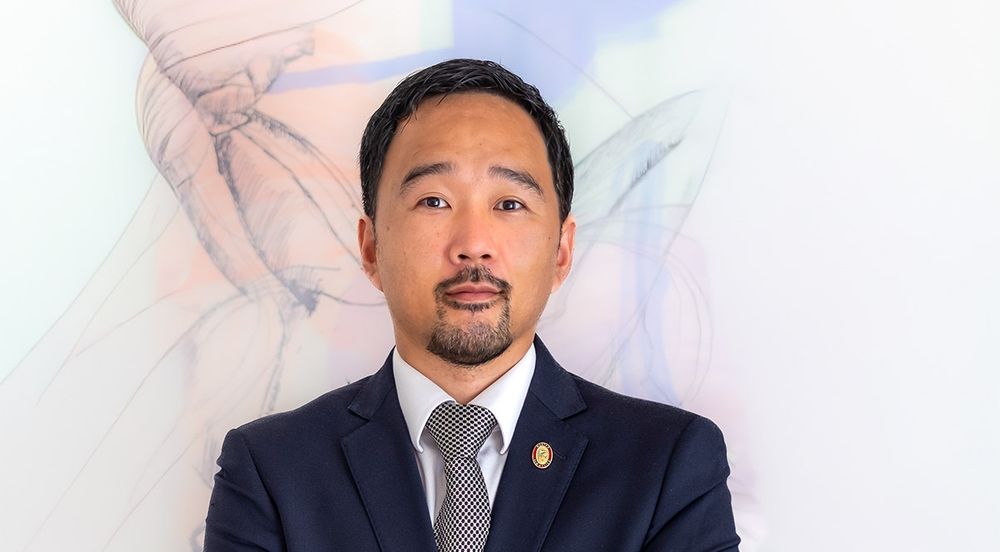
Andreas Rosendal is the first Master Sommelier in Sweden
It became evident to the restaurant manager that it was something I was intrigued about. So, when I finished my stage, he gifted me a book called The Grape Behind the Wine by Oz Clarke. This was my first glimpse into the world of wine, and I found it really captivating. Each variety seemed to tell its own unique story, shaped by its terroir, and by the touch from a winemaker.
It was a world I never knew existed and looking back, it was one of those seemingly minor moments that ultimately changed the course of my life.
What attracted you to being a sommelier specifically?
Beyond the fact that wine is quite intoxicating, what first attracted me to become a sommelier was the way it allowed me to engage with guests in a completely new way, beyond merely serving plates as a waiter. It was about weaving stories that captivated and connected them to the vineyards, transporting them to different regions and introducing them to the winemakers behind each bottle. For an introvert, wine became a great way for me to connect.
To do it well, I had to study, and the more I studied, the more I loved it.
What has been your career as a sommelier and key steps along the way?
When I talk about my career, I always say there are three places that made me into the sommelier I am today.The first was at The Greenhouse restaurant in London. This was the most extravagant, wine-focused place I have ever worked at. The showstopper was the wine list, which included 3,800 wines and was presented on a gueridon due to its size. We opened everything in front of the guests, creating a real sense of showmanship and flair in the service. The wines we got to try were truly unlike any other place.
For example, one day the owner decided to open 100 wines that all had received 100 points from Robert Parker. So at The Greenhouse, I was able to build a reference point for many iconic wines that I have never tried since.
I also learned the technical aspects of the wine service and the importance of the theatrical element during a meal. That said, I still didn’t feel that I truly understood wine, which led me to my second place.
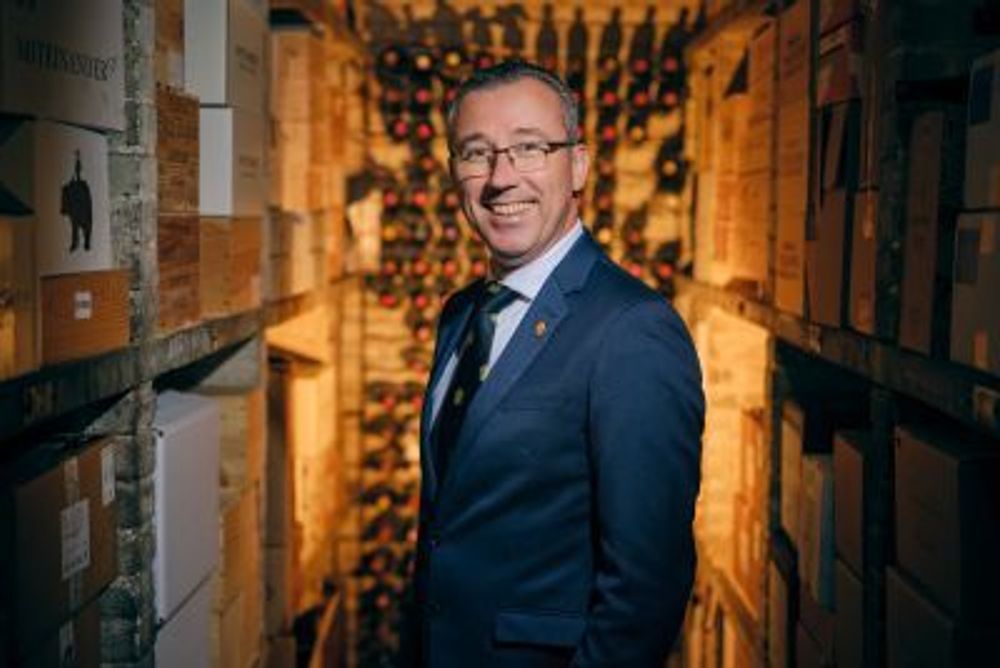
Andreas Rosendal says he has so much to thank Laurent Richet MS for on his journey to becoming a Ma
Instead of taking on a head sommelier position, which would have been the logical step, I decided to go to Restaurant Sat Bains and learn first hand from Laurent Richet MS. This was one of the best decisions I’ve ever made. My goal was to pass the Advanced Sommelier Diploma, and I knew I needed guidance to succeed since my experience with the CMS format was limited at that point.
I will always remember the first time we did a blind tasting together, when he gave me a Riesling QbA from Egon Müller. I ended up calling it Chablis, and it just made me realise how little I really knew about tasting wines. But from then on, we started to do blind tastings every day at work, and I studied theory at night. Every Sunday, I would cycle to his house for blind tastings, a bit of theory, and practical mock exams. While it was tough, it was also incredibly rewarding, passing my Advanced after a year. But perhaps more importantly, I also learned the value of mentoring, and how to do it well!
The third and final place was Flemings Mayfair Hotel, which was about to open a new restaurant and bar. I was asked if I wanted to be in charge of the wine program there, and it felt like an amazing opportunity to create something from scratch. I had to recruit my own sommelier team, and I introduced this rule, which was that if you wanted to be part of the wine team, you had to aim for a qualification. A bit harsh perhaps, but as a result, I became surrounded by people who were just as driven and focused as I was. We all loved coming to work, and we pushed, supported, and helped each other along the way. We would come in on Sundays when the restaurant was closed and spend hours training together, and during the week, in between breaks, we would have quick blind tasting or do some theory questions.
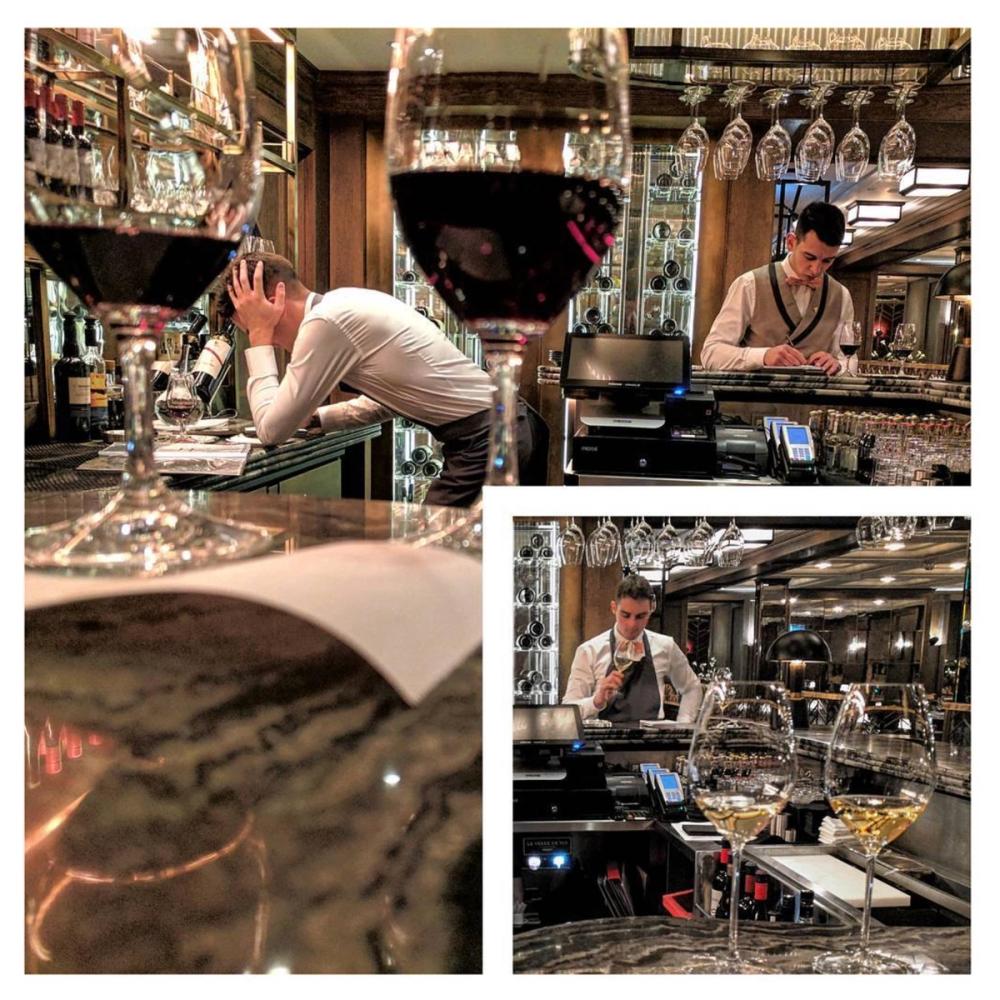
Sommelier team at Flemings hotel
The team just smashed it and achieved everything they had set out to do. I ended up having one of the best times of my life there and the “rule” is now set in stone.
What was your initial training to be a sommelier?
After high school, I took a few wine courses at university, which I really enjoyed.I then embarked on a self-learning path through the WSET, starting with Level 3 and then move on to Diploma. At that time, there was a more affordable option to take the examinations without attending the classes. However, there is only so much you can learn from books, and I wouldn’t recommend trying to do everything on your own. It took me ages to complete.
What do you enjoy most about being a sommelier?
I think it depends on the stage of where you are at in your career. When you're starting out as a sommelier, there’s the thrill of always learning something new. There's the excitement of service, being able to take guests on a journey and recommend wines that you love, or having that feeling that today will be the day you finally sell that bottle you have been staring at for months.
Then, of course, there are all the wines you get to try, attending wine events, portfolio tastings, meeting winemakers, and being invited on trips to explore places you’ve only read about. Walking in the vineyards for the first time, tasting wine from a barrel, and visiting the dug-out cellars of Champagne - what's not to love?
As you progress to the role of head sommelier or wine director, you get to enjoy creating your own wine list. You also begin to see the positive financial impact you have on the business and start to get involved with other parts of the team, such as training the front of house or bar staff.
But the part I’ve always enjoyed the most is the mentoring and training. Especially those who have no experience in wine, but just have an amazing attitude to learning. They will start out as a commis, commit to a year of training, and then sit the CMS Certified exam. After passing, they receive a well-deserved promotion, and for me it’s just incredibly rewarding to witness their growth and follow their progression as they go on.
What do you find the most challenging part of being a sommelier?
I think the most challenging parts of being a sommelier is staying on top of things that happen in the world of wine. Every day, it seems there are new appellations popping up, special cuvées being released, or changes in regulations you need to be aware of. It’s easy to feel overwhelmed at times.
I also find it frustrating sometimes when I’m studying, when I feel that I need a bachelors degree in history, geology, biology, botany, science, chemistry, viticulture, or winemaking just to understand what the book says. That said, I feel that with the tools we have today, like GuildSomm, WineFolly, and to some degree even ChatGPT, it has never been easier to find the answers.
Why do you want to train to be a Master Sommelier?
For me, going through the various levels of the Court of Master Sommeliers have always been a way to push myself to become a better sommelier, reaching a level I might not have achieved or pursued otherwise. Achieving the MS has certainly been the pinnacle of this journey, it’s not an end but rather just the beginning of a new one.
What was the process like in terms of the difficulty and the time and dedication you need to put into the programme?
I received the invitation for the exam in October in January so I had 10 months to prepare. I sat down with my wife for a long conversation about what it would mean for the family if I were to put in the hours to have a realistic chance of passing. Being wonderful as she is, she was more than happy to support me. So I was able to spend six hours per day, four to five days a week, to study theory, which is something I weirdly enjoy doing. But there’s no way around it, it is a huge amount of information you need to know and more importantly, to understand.
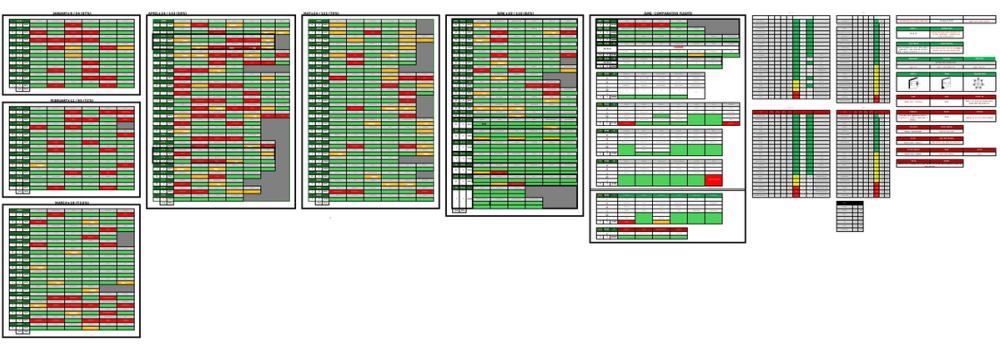
Andreas Rosendal's "Gameplan for blind tasting" – Green are correct, orange are in the pre-conclusion and red are misses)
Tasting, however, felt like the complete opposite and It has never come naturally to me as theory has. Part of the reason why I had never passed the tasting before is because I never really knew how to approach it correctly. I thought I just needed to taste more wines and it would just come to me. But after passing the theory and practical exams in 2024 (and failed tasting four times), I thought really hard about what I was missing in my understanding of blind tasting wines. And it became clear to me that that I missed the in depth knowledge to actually be able to connect the dots when tasting the wines.
So I started to buy a lot of books on wine chemistry, flavour compounds, and even neurology. There were also many helpful materials from other Master Sommeliers that I could draw from. From this, I developed my own “theories” about how to identify each variety, and after months of blind tastings, I was finally able to connect the dots. It felt like I wasn’t just making a guess anymore, but I finally had a scientific blind tasting model that worked.
But it took six months, 720 wines, 120+ flights and endless follow up and comparative tastings to get there.
What have you enjoyed the most about the training/ education side of becoming a MS?
Finishing all the blind tasting wines after each attempt was certainly rewarding. No joking aside, possessing all the knowledge I have built up over the years goes without saying. The way it pushes you out of your comfort zone and helps you grow as a person has been invaluable as well. But I have also enjoyed the journey itself. While it has been long, with many ups and downs, it has become a significant part of who I am. I’ve been fortunate to meet so many wonderful people along the way, creating unforgettable moments and sharing countless laughs (and bottles).
What did you find the most difficult and how do you manage to get over those difficulties?
Dealing with failure would be the most obvious one. In the past, I used to have a habit of pointing out faults or make excuses for why I didn’t succeed, instead of thinking what I did wrong. So one of the greatest lessons I’ve learned through this is to embrace failure as an opportunity for learning and growth. It may sound a bit cliché, but I believe that having the right mentality is so important when pursuing the MS.
Then, of course, there’s blind tasting, which I’ve mentioned a few times now. Everyone has a different approach, but if you’re struggling like I was, I would highly recommend these three books:
Message in a Bottle by Tim Gaiser MS
Beyond Flavour by Nick Jackson MW
Behind the Glass by Gus Zhu MW
Another significant challenge was how to manage the stress of the exams. I was advised to give meditation a try by another Master Sommelier and it would be fair to say I was a bit sceptical at first. But in the end, I would say it played a part in helping me pass my tasting exam.
When I attempted the blind tasting exam in 2017, the cortisol from stress, knowing that I would reset if I failed just completely blocked my ability to smell anything in the first three wines. So when I did the tasting in Vienna this year, I was waiting in the lobby and I could feel the stress creeping up. So I just started to meditate, and when my name was finally called, I felt relaxed and ready.
What advice would you give to other sommeliers who want to train to be a MS - what are the key things they need to consider?
If you’re not too familiar with the CMS format but know it’s where you want to go, I would recommend finding a good mentor. It’s going to save you a lot of money and a lot of time. But If you are already comfortable with it and are waiting for the invitation to take the MS exam, make sure you have enough time to actually do it. In the end, it’s not something that will be handed to you, it’s something you will have to earn.
Also find a good mix of study partners. In a perfect world, have some who are pursuing the MS, some who are working towards the MW, and others who compete. It just allows you to see things from different perspectives and while it may not always relate directly to the MS, if it makes you better, then why not?
What has it meant to you personally to become a MS?
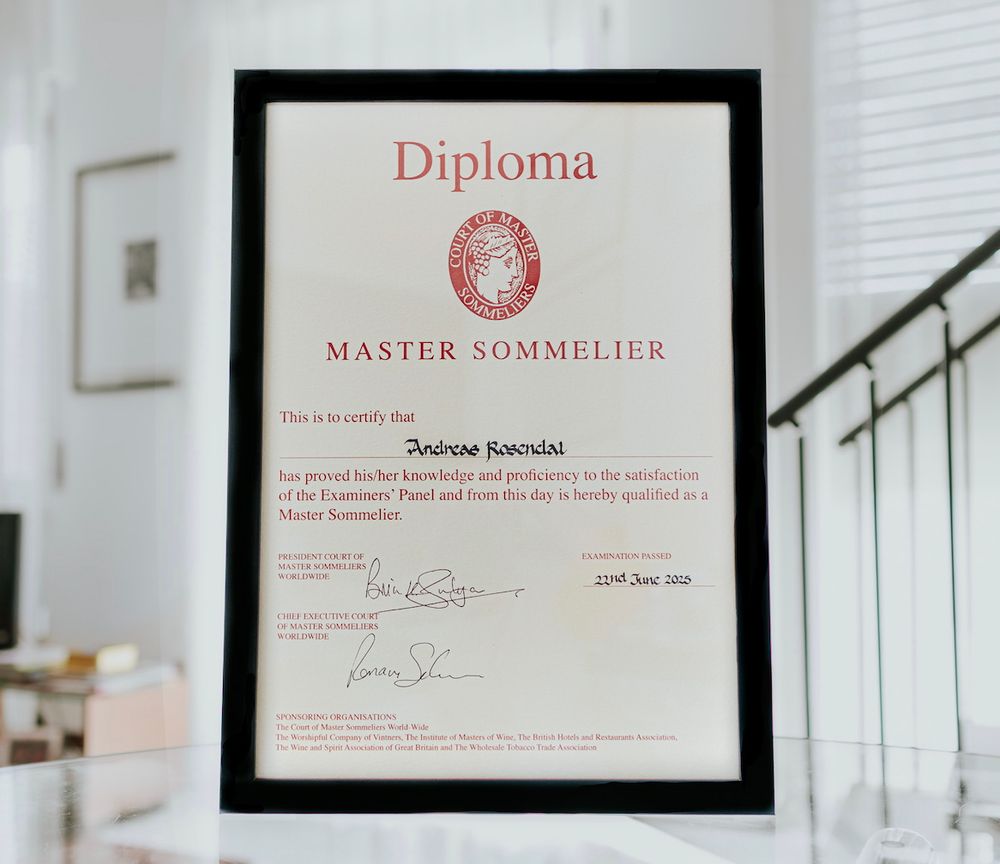
Pride of place...
Becoming an MS is the third best thing that has ever happened to me - right after getting married and the day my son was born. Of course, being the first Swedish Master Sommelier is a nice bonus.But as said, achieving the MS title isn’t the end, it’s just the beginning of a new journey.
It is helping with your career and your job opportunities?
Yes, undoubtedly. But for me, I would say the significant change has been the sudden increase of invitations to various things, such as attending wine events, holding lectures and hosting masterclasses. So I am very excited about what’s to come next.
What are your ambitions now as a sommelier and where you want to work?
I promised my wife that I would spend some quality time together for a couple of months, as I’ve been pretty absent for the last one and a half years. So it’s a chance to breathe a bit, read wine books for the pleasure of it and learn the meaning of the word "aperitivo”.
In terms of ambition, I’m currently taking a deep look into the Master of Wine program, as it’s something I might apply for next year. But If you had to press me, I would say that I would love to work in a place that combines the uncompromising pursuit of Restaurant Sat Bains, with the technical, theatrical service of The Greenhouse, and the wine training program of Flemings. That would be my dream. I just need to find it.
Anything else to say?
If you are ever in doubt about following your passion, just watch the commencement speech Steve Jobs delivered at Stanford in 2005. It will truly inspire you.
* To find out more about the Master Sommelier exams go to Court of Master Sommeliers website here.
